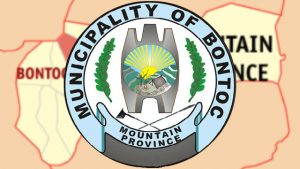KAPANGAN, Benguet – The road opening project that will pave the way for the full-scale construction of the 60-megawatt hydro power plant spanning the Kapangan and Kibungan ancestral domains remains on track amidst the wrath of the Coronavirus Disease 2019 (COVID-19) global pandemic.
Lawyer Jingboy Atonen, legal counsel of the Cordillera Hydroelectric Power Corporation (COHECO), disclosed that despite the imposition of restrictions on the movement of people and the implementation of skeletal work force during the community quarantine, construction activities on the ongoing road opening project from barangay Cuba in Kapangan up to Badeo in Kibungan had been in full blast that allowed the company to make significant advances on the state of the road leading to the site of the power plant at least 20 kilometers away from the Acop-Kapangan-Kibungan-Bakun-Sinipsip national road.
He claimed the current location of the access road under construction is at Amsaka, Beleng-Belis in Kapangan or 4.25 kilometers from the junction of Balacbac in Cuba and the national highway.
See more stories:





The COHECO official stated that the completion of the access road with a length of more or less 20 kilometers up to the site of the power plant will pave the way for the full blast construction of the other components of the power plant such as the tunnels and the power plant for the benefit of the indigenous people and the indigenous peoples communities once the renewable energy plant will be operational.
According to him, the weir of the power plant is located 3 kilometers away from the national road or the same had already been reached by the ongoing road opening, thus, initial works had also taken place for the putting in place of the needed facilities in time for the future construction works that will make the plant operational within the next several years.
He said that contractors of the road opening project are trying to work double time to ensure the opening of the road up to the site of the power plant so that the required units of equipment will be transported to the area while allowing the same to be used by the residents in the communities that will be traversed to transport their agricultural produce to the nearest market with ease compared to the previous situation where they have to manually haul their produce to the highway and load the same to vehicles for transport to the trading centers.
The company lawyer explained that the completion of the renewable energy project will bring more development opportunities to the indigenous peoples and indigenous cultural communities in the ancestral domains of Kapangan and Kibungan through the various commitments that were contained in the memorandum of agreement that was signed by the company and tribal elders several years back.
Earlier, local governments, tribal elders and indigenous peoples and indigenous cultural communities endorsed the construction of the hydro power plant after the conduct of the required free and prior informed consent (FPIC) that was undertaken through the stewardship of the National Commission on Indigenous Peoples (NCIP) pursuant to the provisions of Republic Act (RA) 8371 or the Indigenous Peoples Rights Act (IPRA) of 1997 that mandates companies intending to develop the State’s resources to first secure the consent of the affected IPs and ICCs.
By Hent
You might also like:























